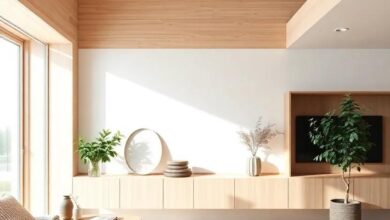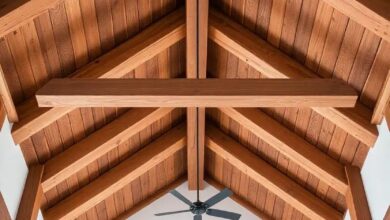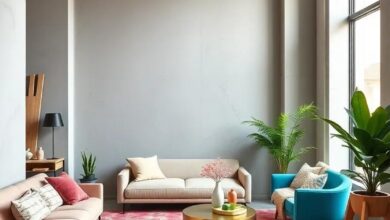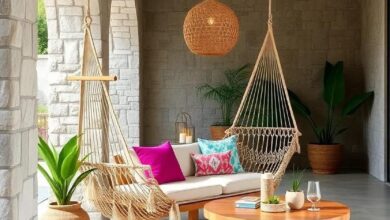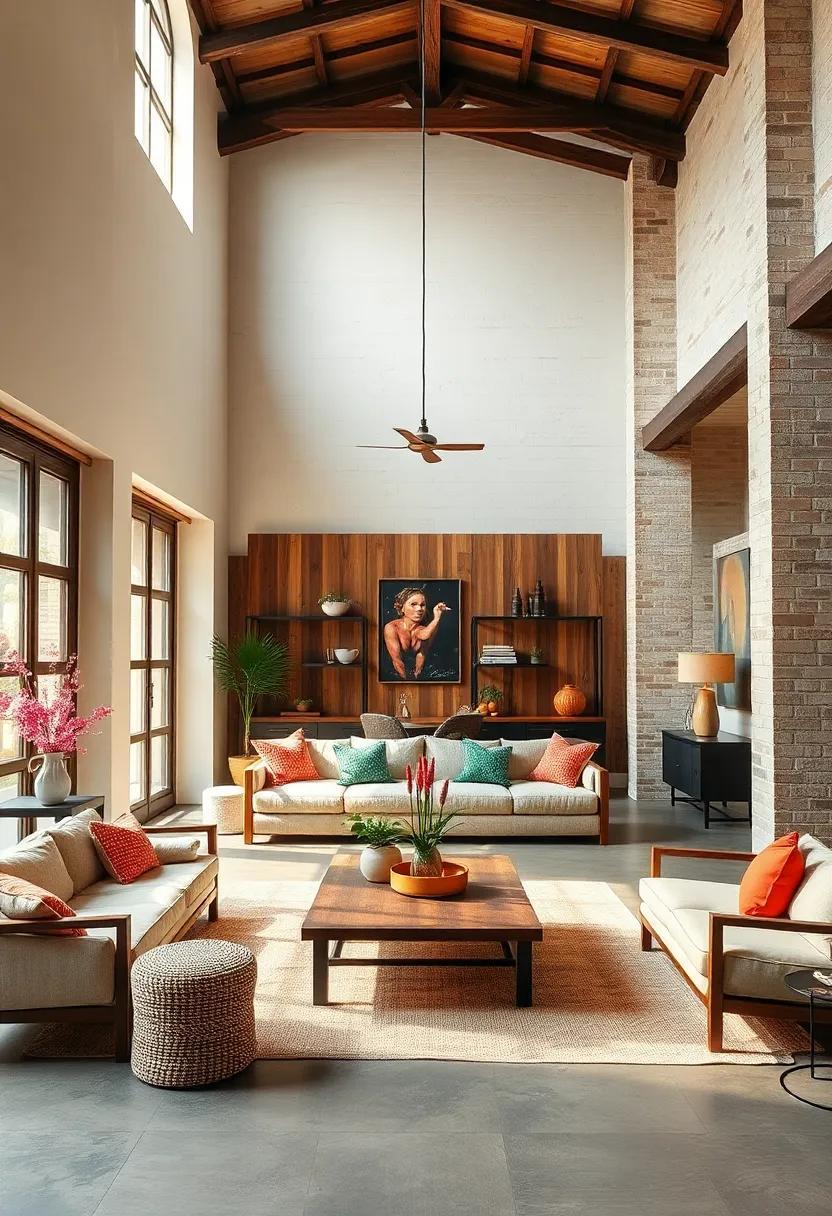
Embracing Charm: The Allure of Traditional Warehouse-Style Interiors
In a world that often gravitates toward sleek minimalism and futuristic designs, there lies an undeniable charm in the rugged elegance of traditional warehouse-style interiors. The expansive spaces, adorned with exposed beams, raw brick walls, and weathered wooden floors, evoke a sense of history and authenticity that resonates with our collective yearning for a connection to the past. These interiors, born from the repurposing of once-vibrant industrial buildings, seamlessly blend function and aesthetic, offering a canvas rich with character and warmth. As we delve into the enchanting allure of warehouse-style decor, we invite you to explore how these layouts transform our living and working environments, celebrating not only their storied origins but also their timeless appeal.Join us on a journey to uncover the essence of charm that lies within these distinctive spaces, and discover how embracing this style can infuse your surroundings with a meaningful narrative.
Embracing Raw Beauty: The Industrial Appeal of Exposed Brick Walls in Warehouse Interiors
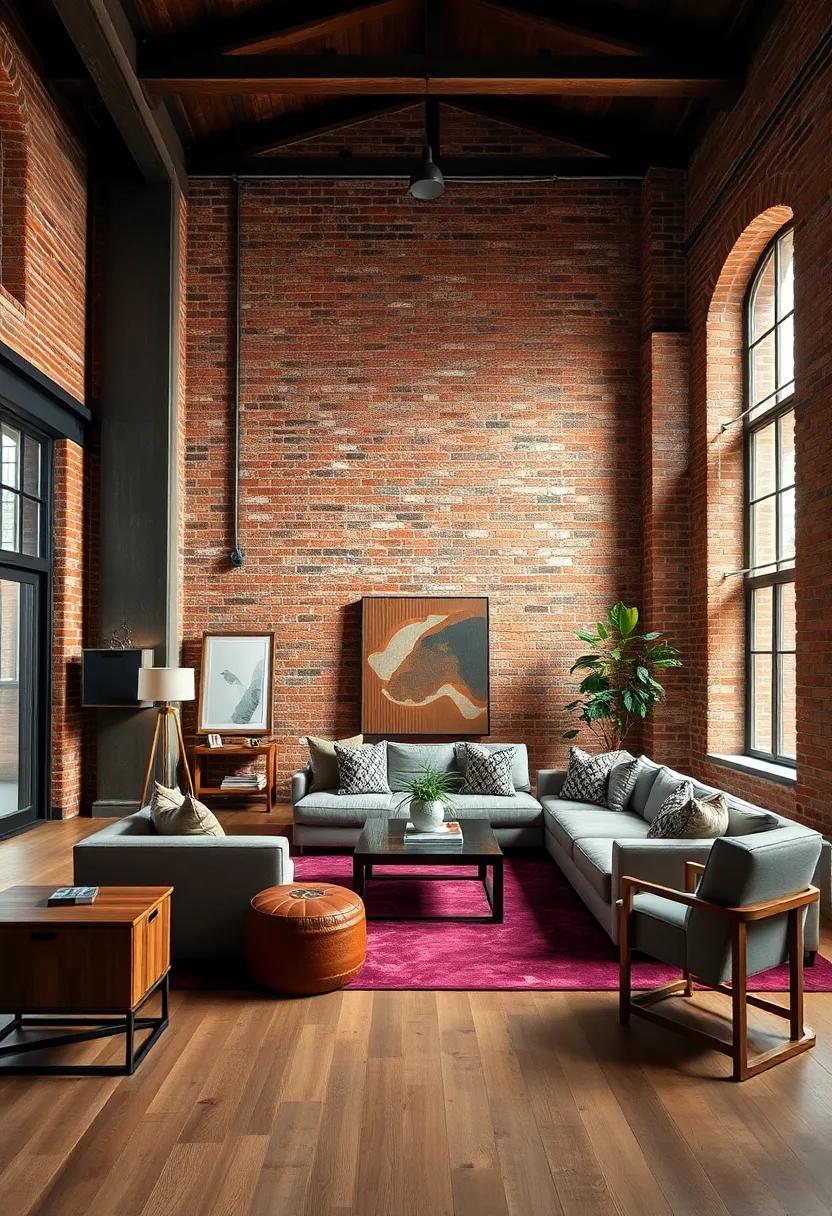
There’s something inherently captivating about the raw, unrefined characteristics of exposed brick walls that effortlessly deliver a sense of history and authenticity to warehouse interiors. The undulated surface, frequently enough adorned with the marks of time, provides an ideal backdrop that celebrates imperfection and adds depth to any space. This aesthetic draws on the juxtaposition of industrial elements with contemporary design,creating a harmonious balance that appeals to both nostalgic sentiments and modern sensibilities. When integrated into living areas or workspaces, these walls not only tell the story of their surroundings but also foster a sense of warmth that invites creativity and inspiration.
Incorporating exposed brick into your interior design can substantially elevate the ambiance, setting the stage for various decorative elements to shine. Consider the following advantages:
- Versatility: It complements a diverse range of styles, from rustic to minimalist.
- Texture: The rough surface introduces tactile contrast against sleek furnishings.
- Character: Each brick carries its own unique narrative, enriching the visual vocabulary of the space.
- Sound Dampening: The density of brick helps to absorb noise, providing a tranquil environment.
moreover, the use of raw materials extends beyond aesthetic appeal; it aligns with sustainable design principles by celebrating structures that have historical significance. To further showcase this industrial charm, consider how lighting and furnishings can enhance the natural beauty of these walls:
| Element | Impact |
|---|---|
| Lighting | Soft, warm lights can highlight the texture and contours of the brick. |
| Furniture | Vintage or reclaimed pieces can create a cohesive narrative, reinforcing the industrial theme. |
| Colors | Neutral palettes can complement the earthy tones of brick, allowing the walls to be the focal point. |
Soft Lighting and Shadows: Creating a Cozy Atmosphere with Industrial-Style Fixtures
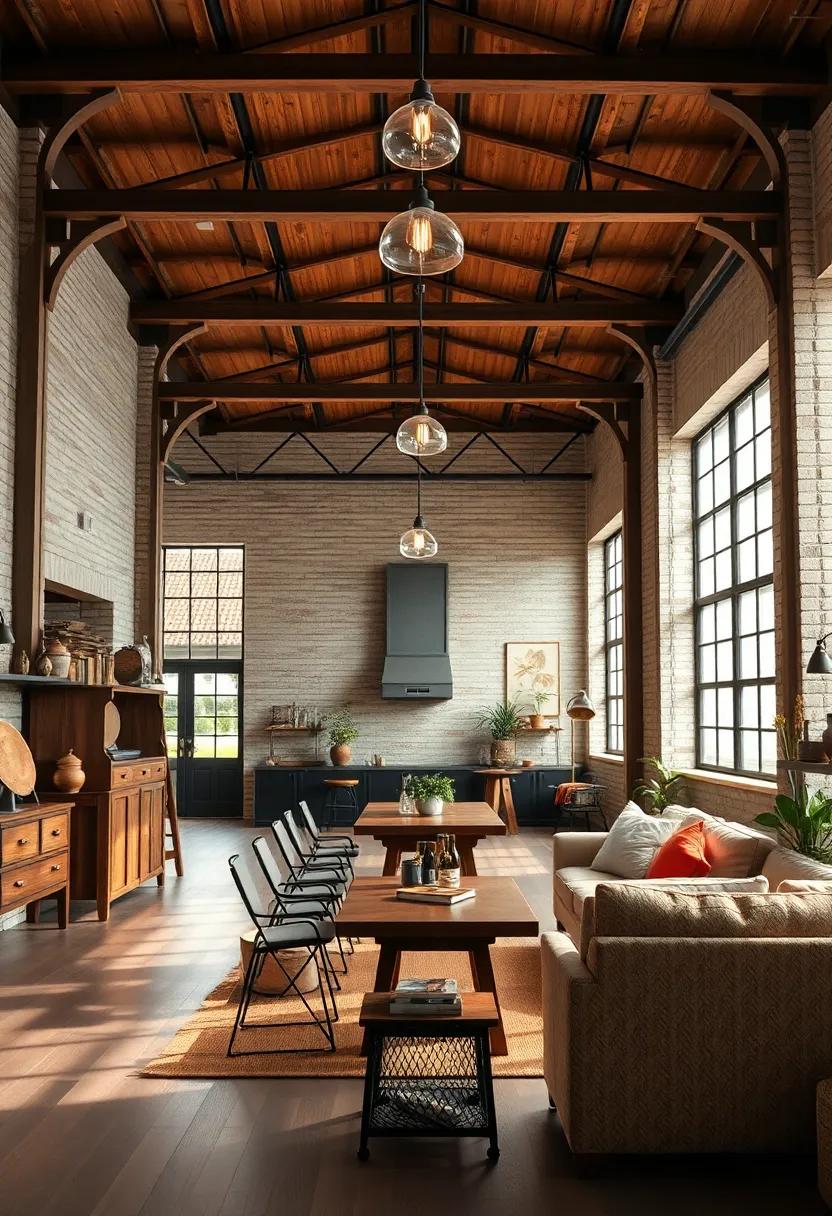
Soft lighting can significantly enhance the aesthetic appeal of industrial-style interiors, creating a warm and inviting atmosphere that draws people in. Using fixtures like vintage-style pendant lights or frosted glass sconces helps to diffuse harsh light, casting a gentle glow that softens the raw edges of industrial design. This balance between light and shadow offers a dynamic play,transforming stark concrete surfaces and metallic furnishings into a cozy enclave. Incorporating layered lighting options, such as adjustable floor lamps and warm-toned LED bulbs, not only adds depth but also allows for versatility depending on the mood or time of day.
Moreover, shadows play a crucial role in intimate spaces, offering visual interest and dimensionality. Thoughtfully placing fixtures can create intriguing patterns across walls and ceilings, adding to the ambiance. consider the following elements when selecting lighting:
- Fixture Material: Metals like brass or blackened steel add a rustic touch.
- Light Bulb Type: Edison bulbs provide a nostalgic, warm glow.
- Height and placement: Lower hanging lights create a more intimate setting.
By harmonizing these elements, you can cultivate a snug environment that embraces the rustic appeal while minimizing the sometimes harsh aesthetic of industrial design.
The Rustic Touch: Incorporating Vintage Furniture into Warehouse-Style Spaces
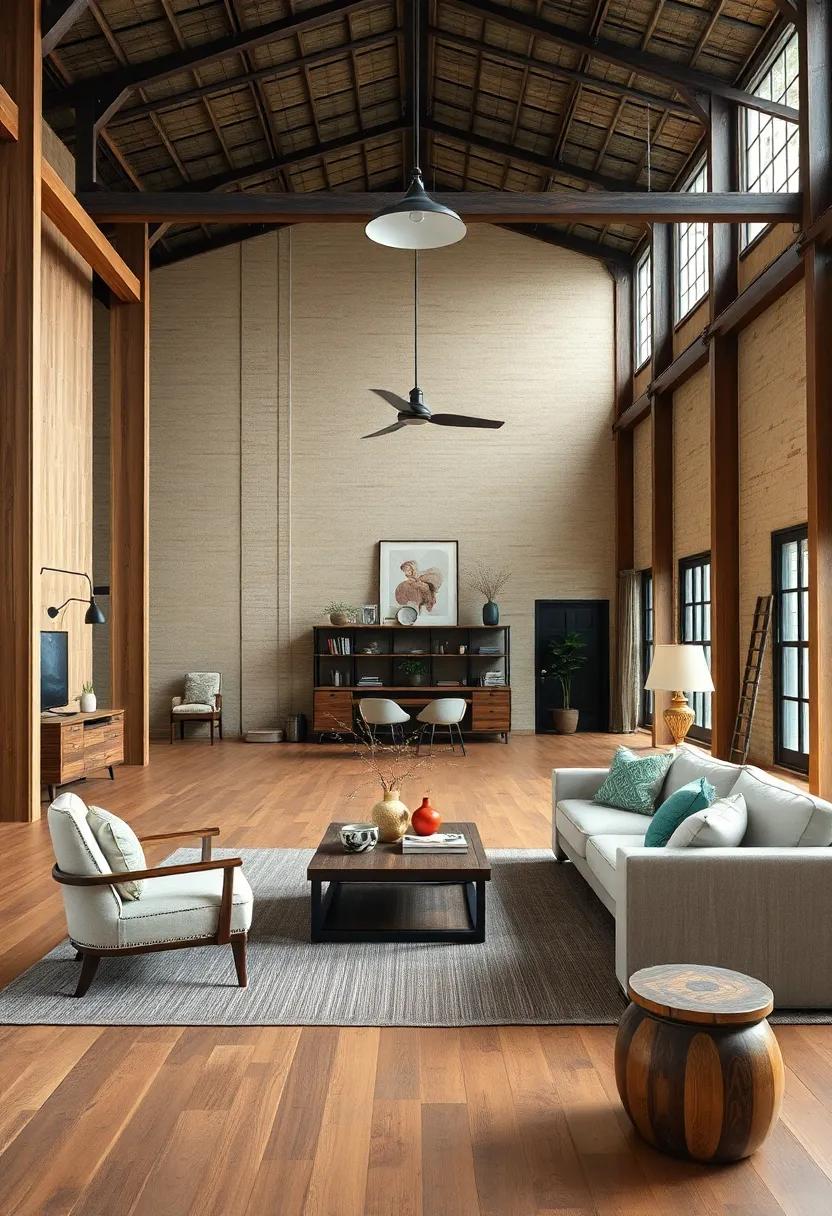
Incorporating vintage furniture into warehouse-style interiors not only adds a layer of character but also creates a warm and inviting atmosphere. Mixing old with new can soften the industrial edges of stark concrete and metal, creating a balanced aesthetic that resonates with both history and modernity.Consider pieces that showcase natural materials and rich patinas, as they can serve as focal points or conversation starters within the expansive space. Some ideal vintage furniture options include:
- Antique wooden tables: Perfect as dining or work surfaces that bring a touch of nostalgia.
- Chesterfield sofas: Upholstered in leather, they evoke elegance while encouraging relaxation.
- Industrial stools: A nod to the functional style of warehouse life, offering practical seating without sacrificing charm.
To ensure a harmonious blend, consider the color palette and overall theme of your space. lightly distressed finishes on vintage items can enhance the raw beauty of warehouse-style interiors. Visual interest can be obtained through judicious placement and layering of textures. Implementing a few statement pieces against the backdrop of a clean, minimalist space can create visual contrast and highlight the charm of vintage selections.Focus on elements such as:
- Bold fabrics: Use textiles for cushions and throws that complement antique patterns.
- Art deco lamps: Introduce warm lighting to soften the curb appeal of harsh metallics.
- Reclaimed wood shelves: Provide both storage and display areas for your vintage finds.
Open Spaces and Breezy layouts: The Freedom of An Expansive Floor Plan
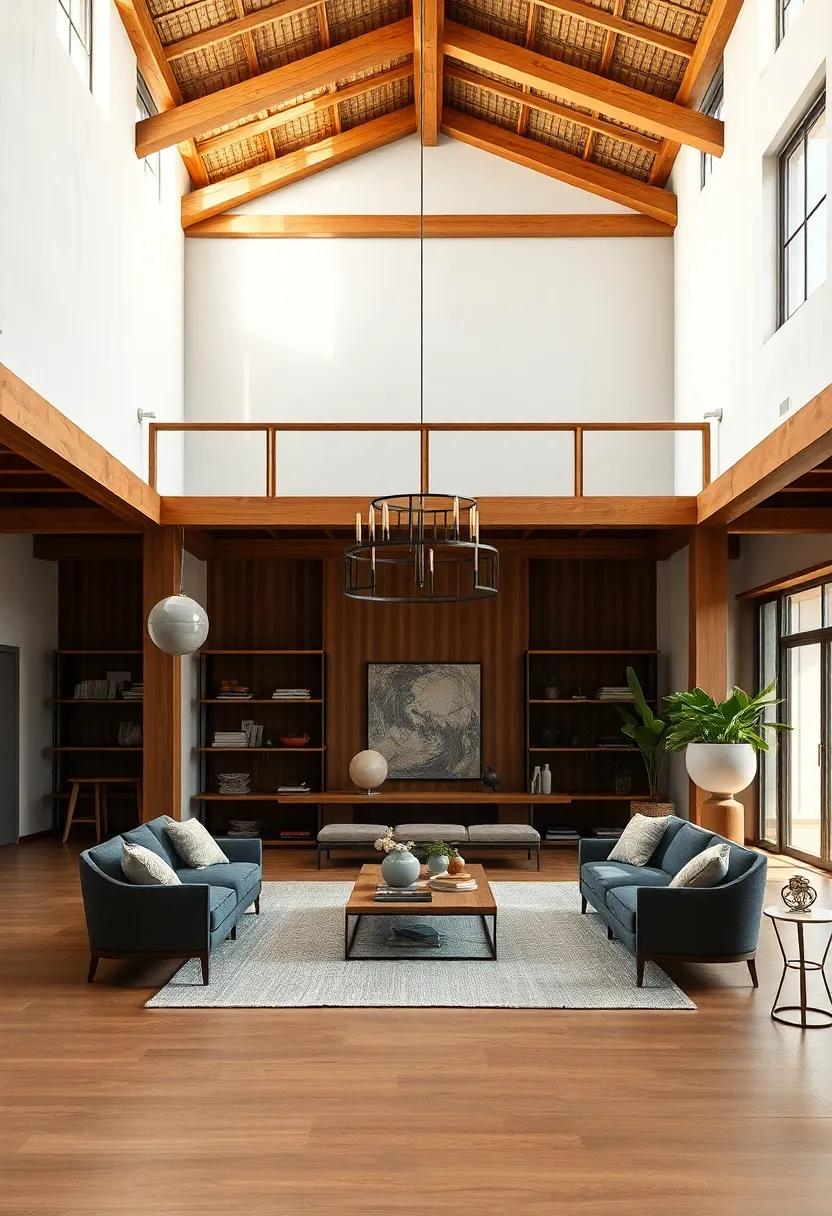
Warehouse-style interiors are celebrated for their lofty ceilings and airy ambiance, evoking a sense of freedom that transforms everyday living into an artistic experience. The minimalistic approach to design complements the expansive square footage, allowing the beauty of the raw materials to take center stage. With features such as exposed brick walls and reclaimed wooden beams, these spaces tell a story of their own. You can easily integrate the following elements to enhance the charm:
- Natural Light: Large windows create a luminous and inviting atmosphere.
- Open Areas: Flexible spaces enable fluid movement and multi-functionality.
- Industrial Accents: Incorporating metal fixtures adds an edgy contrast to softer materials.
Additionally, the versatility of an expansive floor plan is unparalleled, allowing homeowners to curate their environments with personal flair. The seamless flow of space fosters a sense of community, where family and friends can gather comfortably. Consider the following factors to optimize your layout:
| Factor | Benefit |
|---|---|
| Flexible Furniture | Adapts to various occasions, from intimate gatherings to larger parties. |
| Defined Zones | Creates distinct areas for relaxation, dining, and work without walls. |
| Greenery | Brings life and energy, and enhances air quality throughout the space. |
Mixing Materials: How steel and Wood Complement Each Other in Design
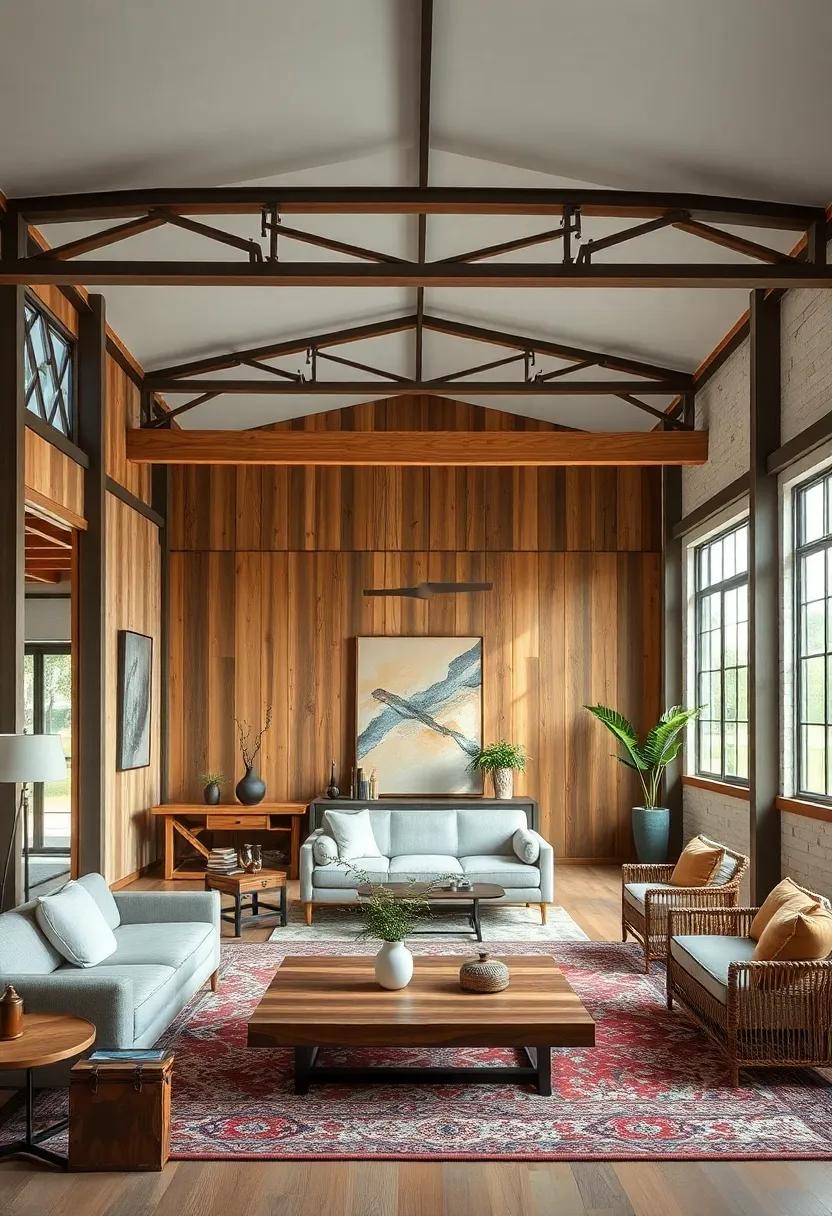
The combination of steel and wood creates a dynamic dialog that enhances both functionality and aesthetic appeal. Steel, with its sleek lines and industrial vibe, establishes a strong foundation in any design. When paired with the warmth and texture of wood, the result is a harmonious balance that softens the rigidity of metal. architects and designers frequently enough utilize this contrast in various forms,from exposed beams to open shelving that showcases timber alongside steel frames. this is frequently enough seen in traditional warehouse-style interiors, where the fusion of these materials not only emphasizes architectural details but also evokes a sense of nostalgia and permanence.
Additionally, the versatility of these materials allows for a vast range of applications, making them suitable for both classic and contemporary settings. Key benefits of this material pairing include:
- Durability: Both materials are long-lasting, making the design functional and practical.
- Versatility: A wide array of styles can be achieved, from rustic to modern.
- Contrast: The blend of hard and soft textures creates visual interest and depth.
| Material | Characteristics | best For |
|---|---|---|
| steel | Strong,sleek,industrial | Structural elements,furniture frames |
| Wood | Warm,textured,adaptable | Accents,flooring,cabinetry |
embodying History: The Story Behind Every Twist and turn of Warehouse Features
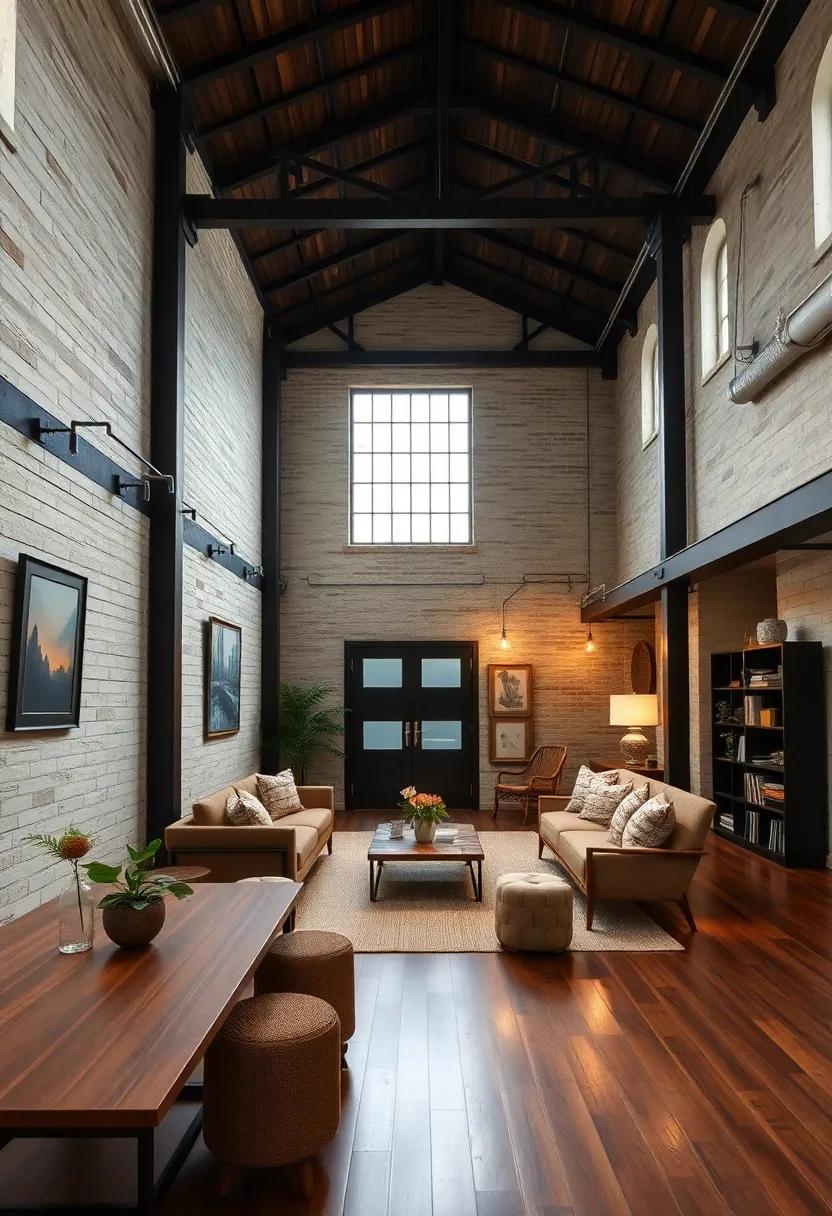
The charm of traditional warehouse-style interiors lies not just in their aesthetic appeal,but in the history embedded within their very structure. Each architectural feature tells a story—exposed brick walls narrate tales of timeworn craftsmanship, while beamed ceilings echo the industrial past of bustling activity. with every twist and turn of the layout, one can sense the evolution of purpose that these spaces have undergone; once mere storage rooms, now transformed into vibrant living areas and creative studios. the intriguing blend of raw materials and historical elements reinforces a unique connection to history, inviting inhabitants to embrace both the elegance and the ruggedness that characterized the eras of their inception.
Delving deeper, the distinctive characteristics of warehouse interiors offer a rich tapestry of visual interest that delights the senses. The high ceilings and spacious layouts are frequently enough complemented by large windows that flood the space with natural light, highlighting the beauty of industrial design. Features that stand out include:
- Polished Concrete Floors: Reflective surfaces that provide a clean yet rugged finish.
- Vintage Fixtures: Lighting and hardware that add a touch of nostalgia.
- Open Spaces: Flexible areas that invite creativity and functional use.
- Rustic Accents: elements such as metal railings and reclaimed wood that echo the industrial heartbeat.
These features come together to create an inviting atmosphere, one that not only reflects a rich legacy but also fosters a sense of community and creativity. In this journey through time, past inhabitants are remembered, and modern residents find inspiration in the storied walls that surround them.
Color palettes with Depth: Exploring Earthy Tones in Traditional Warehouse Interiors
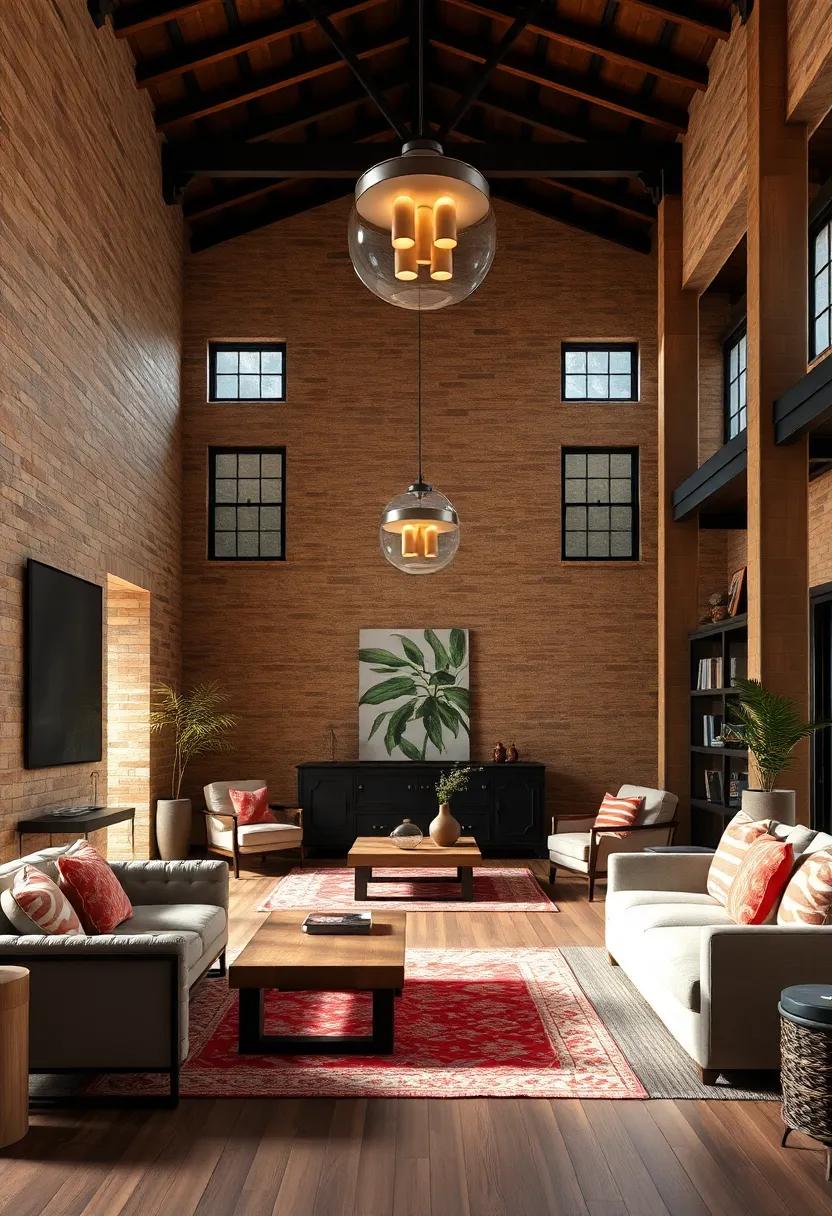
In the world of traditional warehouse interiors, earthy tones breathe life into spaces while creating a warm, inviting atmosphere. Drawing inspiration from nature, these colors can range from deep ochres and rusty browns to muted greens and soft taupes. Choosing the right palette can transform a stark, industrial environment into a cozy retreat that celebrates rustic charm. The importance of texture cannot be overstated; incorporating elements like reclaimed wood, stone, and vintage metals can further enhance the depth of these colors. Imagine a space where the warmth of a rust-red accent wall is paired with the cool serenity of olive green furnishings,evoking a harmonious balance that connects both the aesthetic and the environmental.
Incorporating a variety of shades and tints within your earthy palette can create a dynamic visual experience. By layering colors in different finishes,you can achieve a sense of cohesion while also adding interest. For instance, combining matte finishes with glossy accents can give depth to walls and furniture alike. Consider organizing your palette with a simple guide:
| Color | Hex Code | Suggested use |
|---|---|---|
| Terracotta | #E57238 | Accent walls |
| Olive Green | #AABF64 | Furnishings |
| Slate Gray | #7A7D82 | Flooring or furniture |
| Sandy Beige | #D6B10A | Wall color |
These earthy hues offer flexible and timeless choices that can be personalized to taste. When well executed, they not only reflect a natural aesthetic but also create tranquil environments that invite relaxation and creativity. The combination of a thoughtful color palette and textured accessories ensures a unique character that emphasizes both charm and functionality in any traditional warehouse-style interior.
Architectural Elements: The Beauty of Tall Ceilings and Large Windows
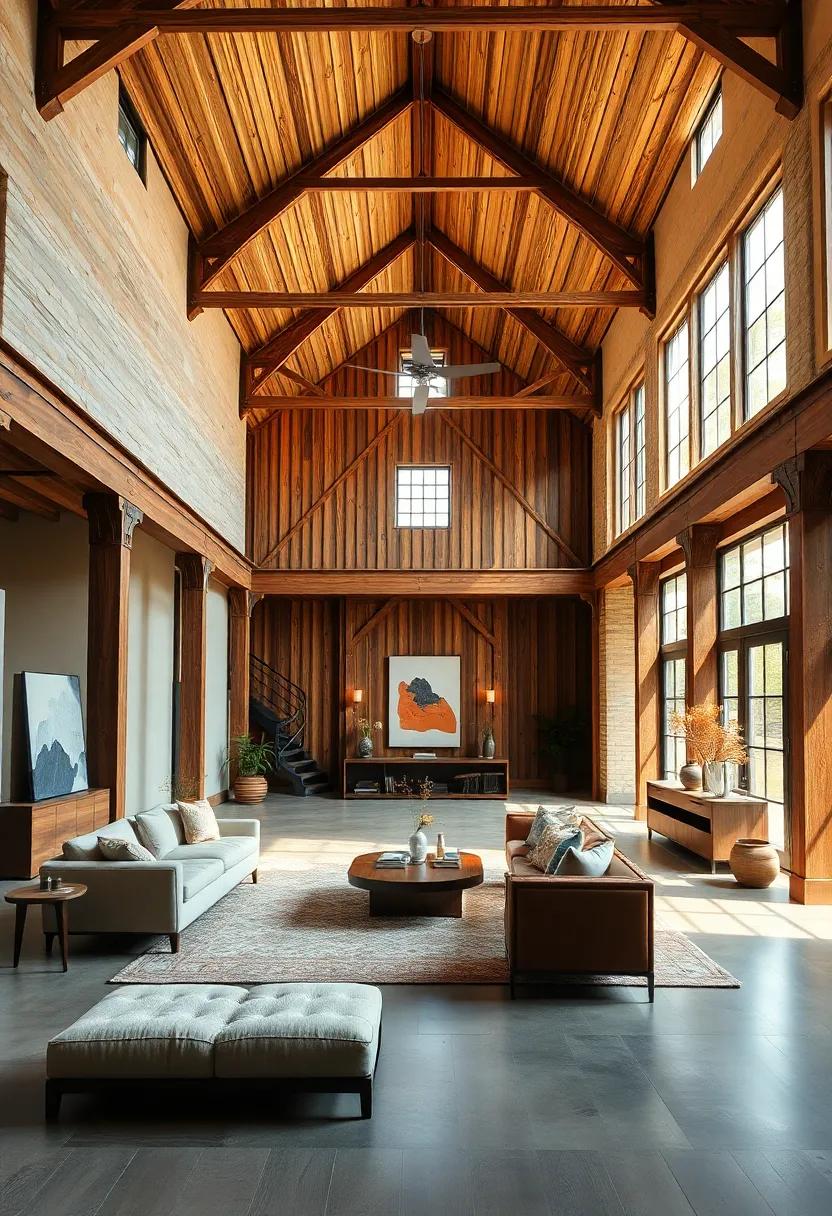
One of the most captivating aspects of traditional warehouse-style interiors is the impact of tall ceilings, which create a sense of grandeur and openness. These soaring heights not only allow for an airy ambiance but also encourage creative lighting solutions that enhance the overall design. When paired with large windows, the result is a space flooded with natural light, making the atmosphere feel bright and inviting. The interplay between light and shadow in such environments can accentuate architectural details, adding depth and dimension to the interior. Homeowners frequently enough find that this combination instills a sense of calm and inspiration, making every corner of the space feel alive.
Large windows invite not just sunshine but also the surrounding world into the home, effectively blurring the lines between the indoors and outdoors. When designed with minimalist frames or historic charm, these expansive openings create a focal point that draws the eye and enriches the character of the space. Consider the following advantages of tall ceilings and large windows:
- Enhances natural light: Maximizes daylight exposure.
- Creates a sense of spaciousness: Offers freedom and elevated living.
- Boosts energy efficiency: allows for passive solar heating.
- Connects to nature: Frames outdoor views beautifully.
Creating a Focal Point: Unique Artwork and Installations in Warehouse Settings
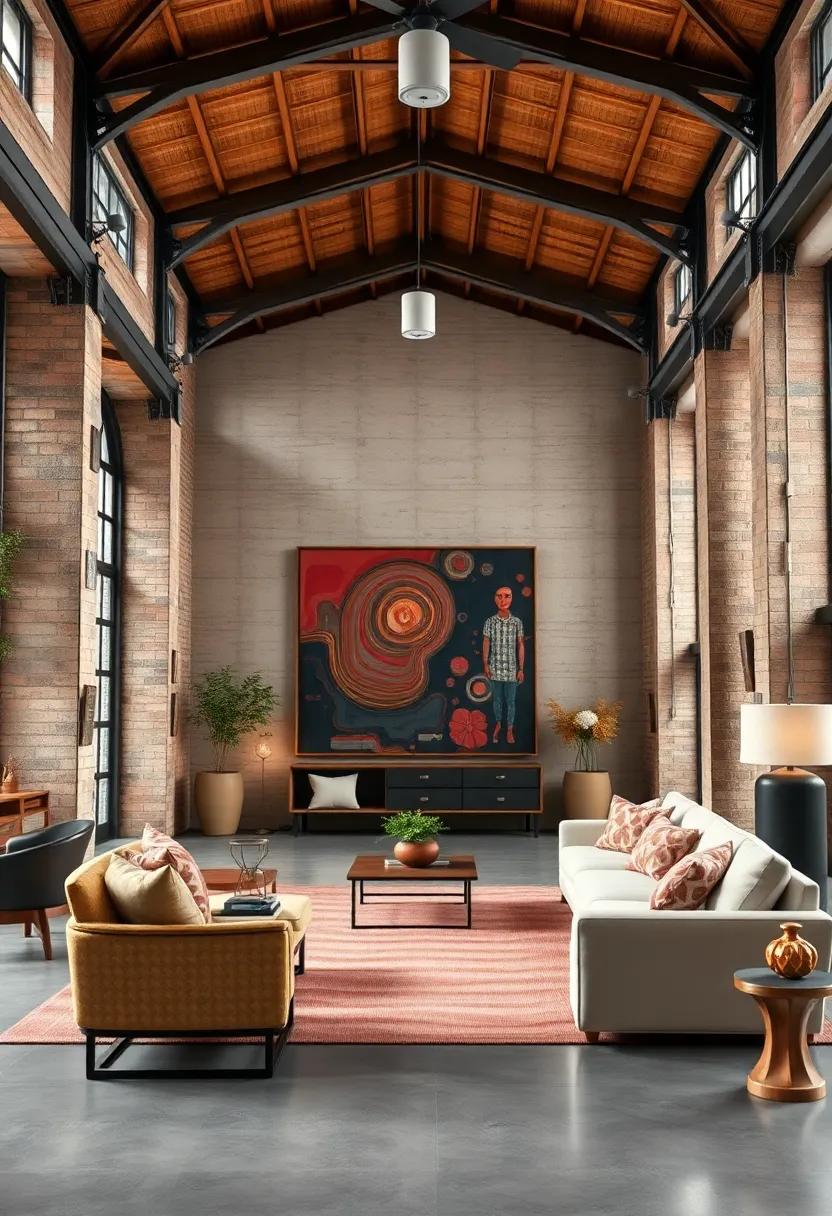
In transforming a warehouse into a captivating living space, the infusion of unique artwork and installations can serve as a powerful focal point. Artists often leverage the vast, open dimensions of such interiors to create pieces that resonate with the rugged charm of the space. Consider the following elements to enhance your warehouse setting:
- Large-scale murals that reflect the industrial past or the vibrant culture of the area.
- Sculptural installations that utilize reclaimed materials, merging creativity with sustainability.
- interactive art pieces that invite visitor engagement, turning the environment into a dynamic experience.
Moreover, strategically placing these artworks can dramatically alter the ambiance of a room. Installation heights and proximity to light sources can influence how they are perceived within the space. For a more cohesive look, consider the following table showcasing complementary ideas for different areas in a warehouse:
| Area | Artwork Idea | Placement Style |
|---|---|---|
| Living Room | Oversized Canvas | Above the Sofa |
| Dining Area | Chandelier Installation | Centerpiece Over Table |
| Hallway | Gallery Wall | Linear Arrangement |
By thoughtfully curating artwork that resonates with both the structure and personality of a warehouse, you can create an enchanting atmosphere that celebrates its unique aesthetic while inviting conversation and connection.
Layering Textures: A Study of Soft Fabrics Against Rough Elements
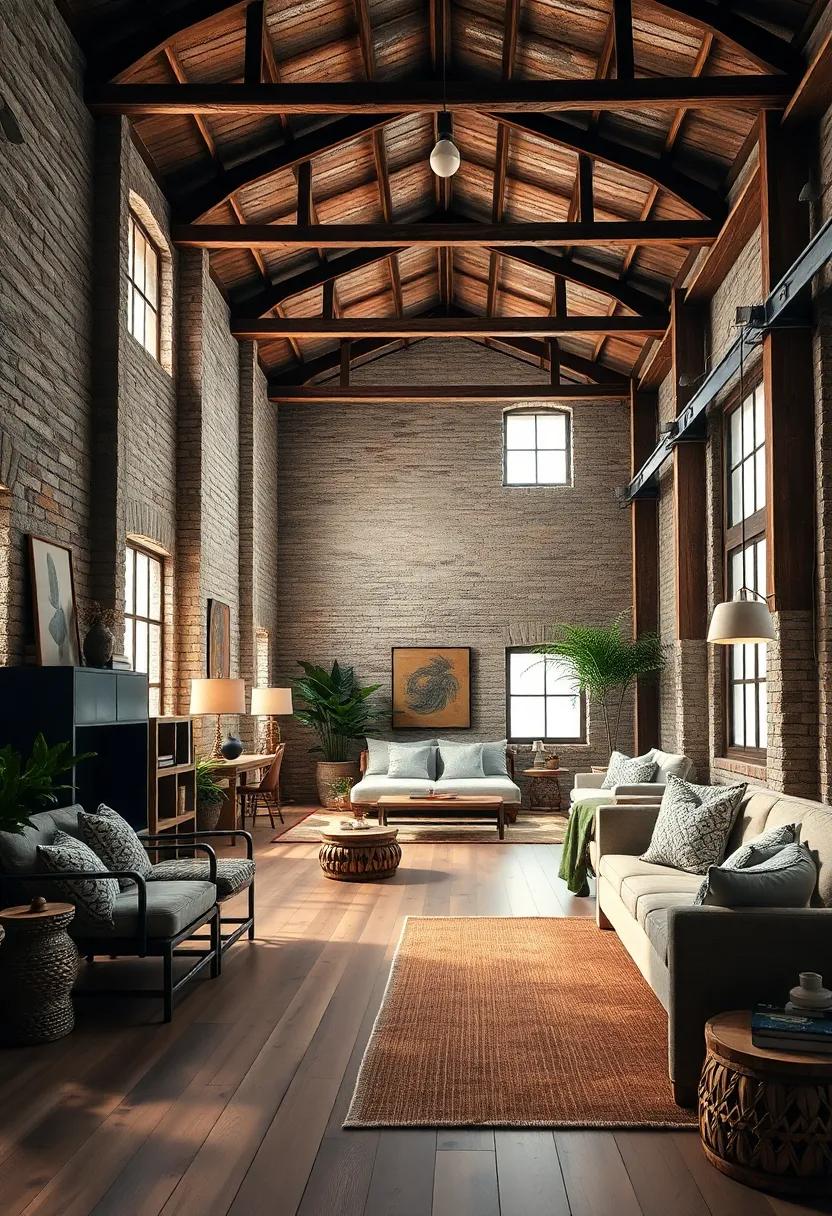
In the realm of interior design, the juxtaposition of soft fabrics against rugged elements creates a captivating visual dialogue, enhancing the charm of traditional warehouse-style spaces. Imagine plush velvet cushions nestled against the raw texture of exposed brick walls, or a cozy wool throw draping casually over a weathered leather armchair. These contrasts are not just aesthetic choices; they evoke a tactile experience that invites one to explore and engage with the environment. The layering of textures serves to soften the frequently enough industrial feel of warehouse interiors, introducing warmth and comfort without compromising the characteristic edge of the space.
When incorporating this interplay,consider the following elements:
- Textiles: Incorporate throws,pillows,and rugs that soften the overall ambiance.
- Furniture: Pair soft sofas with reclaimed wood coffee tables for a balanced look.
- Color Palette: Use muted tones in fabrics to complement harsher materials like metal and concrete.
- Decorative Accents: Add art or functional items made from softer materials—such as ceramics or handwoven baskets—to create contrast.
This thoughtful contrast not only enhances the visual appeal but also appeals to our senses, creating a harmonious living space that feels both comfortable and uniquely stylish. The synergy between the rugged and the refined captures the essence of traditional warehouse design, making it an enduring choice for those seeking to infuse their interiors with character.
Eclectic Styles Unite: Blending Traditional and Modern Influences in Design
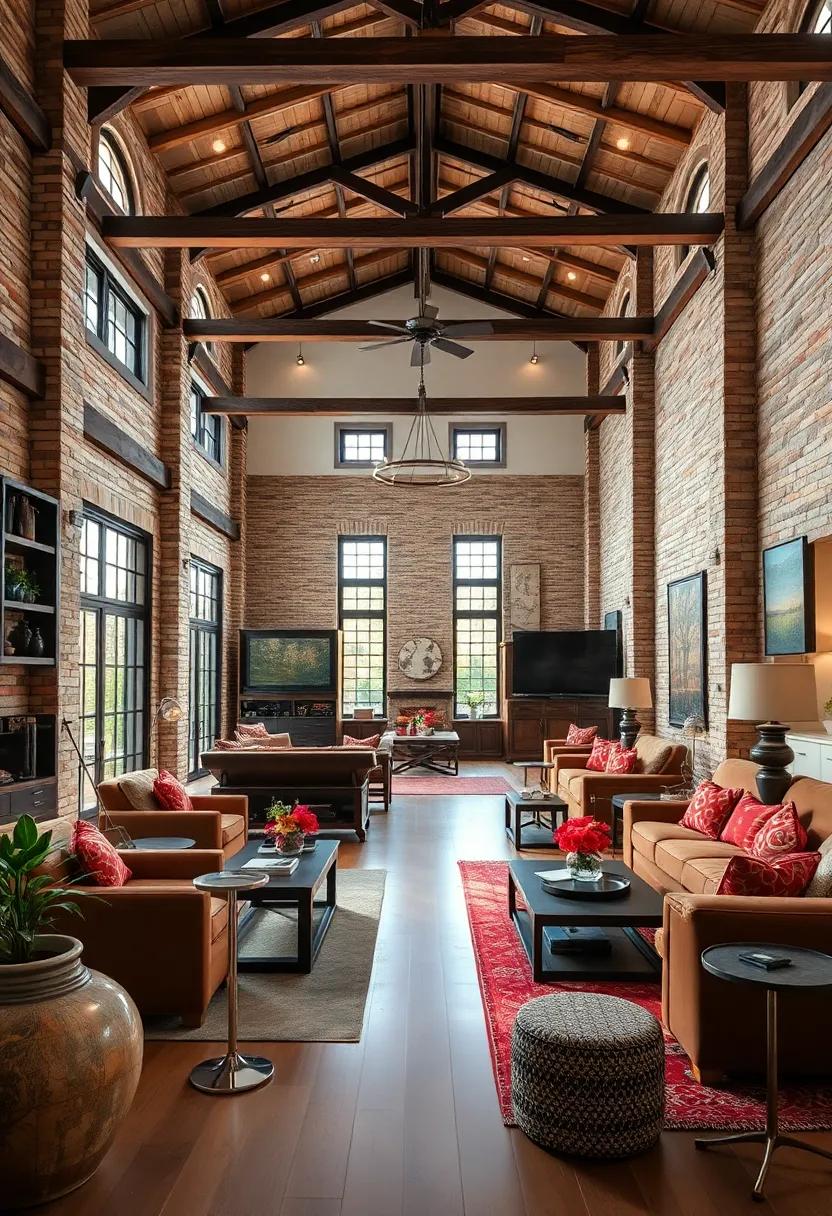
In today’s design landscape, the fusion of traditional and modern aesthetics is a delightful pursuit, especially evident in warehouse-style interiors. These spaces often feature exposed bricks and vast open layouts,serving as a canvas for rich textures and artistic expressions. By incorporating classic elements such as ornate moldings and vintage furnishings,designers breathe life into the raw industrial charm. the juxtaposition of the aged, weathered aspects of a warehouse with sleek, modern accessories—like stainless steel appliances or geometric furniture—creates a dynamic interplay that captivates the senses. This blend invites a unique storytelling experience, where the history of the space harmonizes with contemporary living.
To achieve a balanced design, one may consider the following components:
- Color Palette: Warm neutrals blended with bold accent colors create a soothing yet vibrant atmosphere.
- Materials: Combining natural elements—like wood, metal, and glass—can enhance both warmth and sophistication.
- Furnishings: Mixing vintage pieces with modern designs not only adds interest but also showcases personality.
In designing these eclectic spaces, one might find it beneficial to reference how traditional techniques can harmoniously coexist with modern innovations.An insightful approach involves analyzing key design attributes like:
| Traditional Element | Modern counterpart |
|---|---|
| Wood Beams | Minimalist Steel Structures |
| Classic Patterns | Abstract geometric Designs |
| Antique Lighting Fixtures | LED Modern Pendants |
By embracing these elements and ideas,individuals can curate spaces that reflect personal narratives while celebrating the evolution of design principles over time.
Sustainable Choices: Choosing Eco-Friendly Decor for Warehouse Interiors
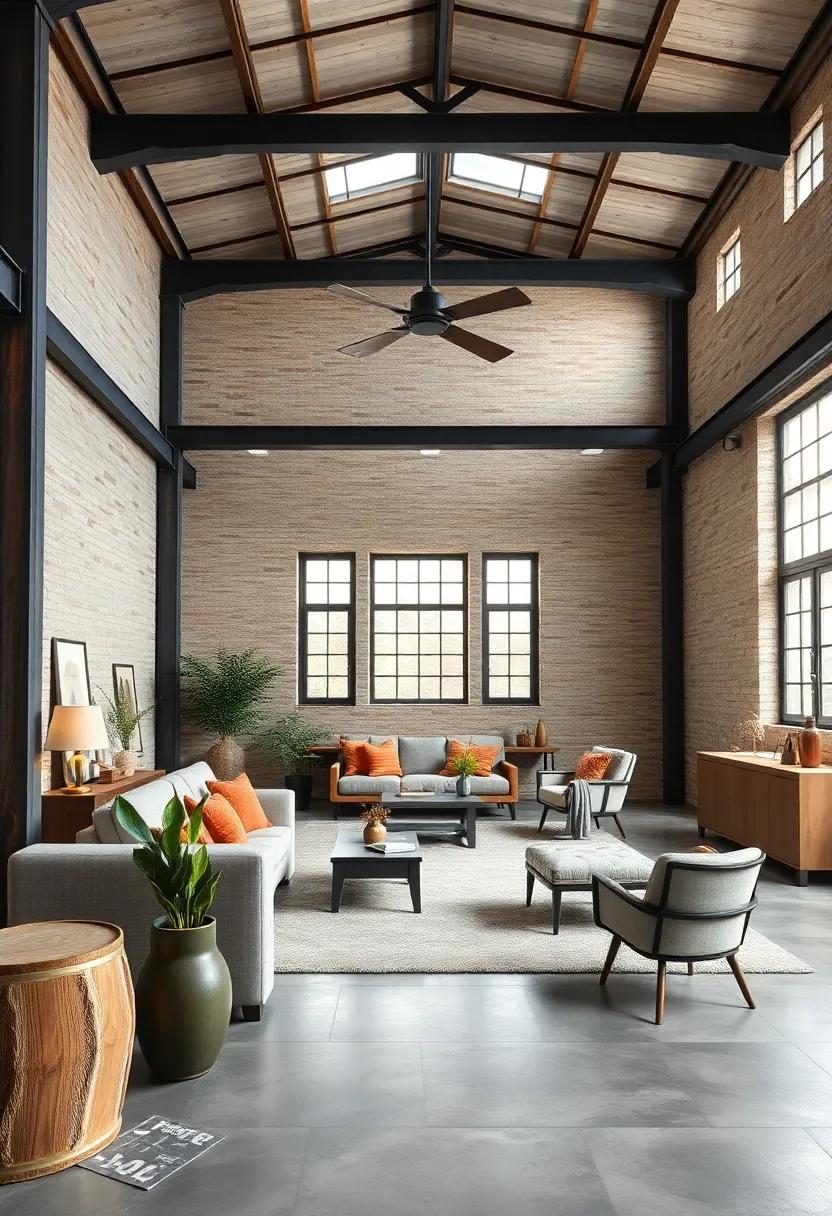
In the quest for aesthetically appealing yet sustainable warehouse interiors, embracing eco-friendly decor has never been more crucial. Selecting materials that not only enhance the charm of traditional spaces but also promote environmental duty can transform a warehouse into a vibrant hub. Consider using reclaimed wood for flooring and furniture, which adds a rustic flair while minimizing the demand for new timber. another great option is upcycled metal, which can be fashioned into striking light fixtures or structural elements, celebrating the industrial heritage frequently enough found in warehouse-style buildings.
To further enhance the sustainability of your decor, opt for natural textiles like organic cotton or linen for soft furnishings.These materials not only offer comfort but also significantly reduce exposure to harmful chemicals. Incorporating plants into your design can also have a dual purpose; they improve air quality while bringing a touch of nature indoors. A comparison table outlining various eco-friendly decor options can help clarify these choices:
| Material | Benefit | Use |
|---|---|---|
| Reclaimed Wood | Reduces new lumber demand | Furniture,flooring |
| Upcycled Metal | Reduces waste,unique aesthetic | Light fixtures,decor accents |
| Natural Textiles | Non-toxic,sustainable | Cushions,curtains |
| Indoor plants | Improves air quality | Decor,air filtration |
Crafting Cozy Nooks: Designing Inviting Spaces Within Open Warehouse Settings
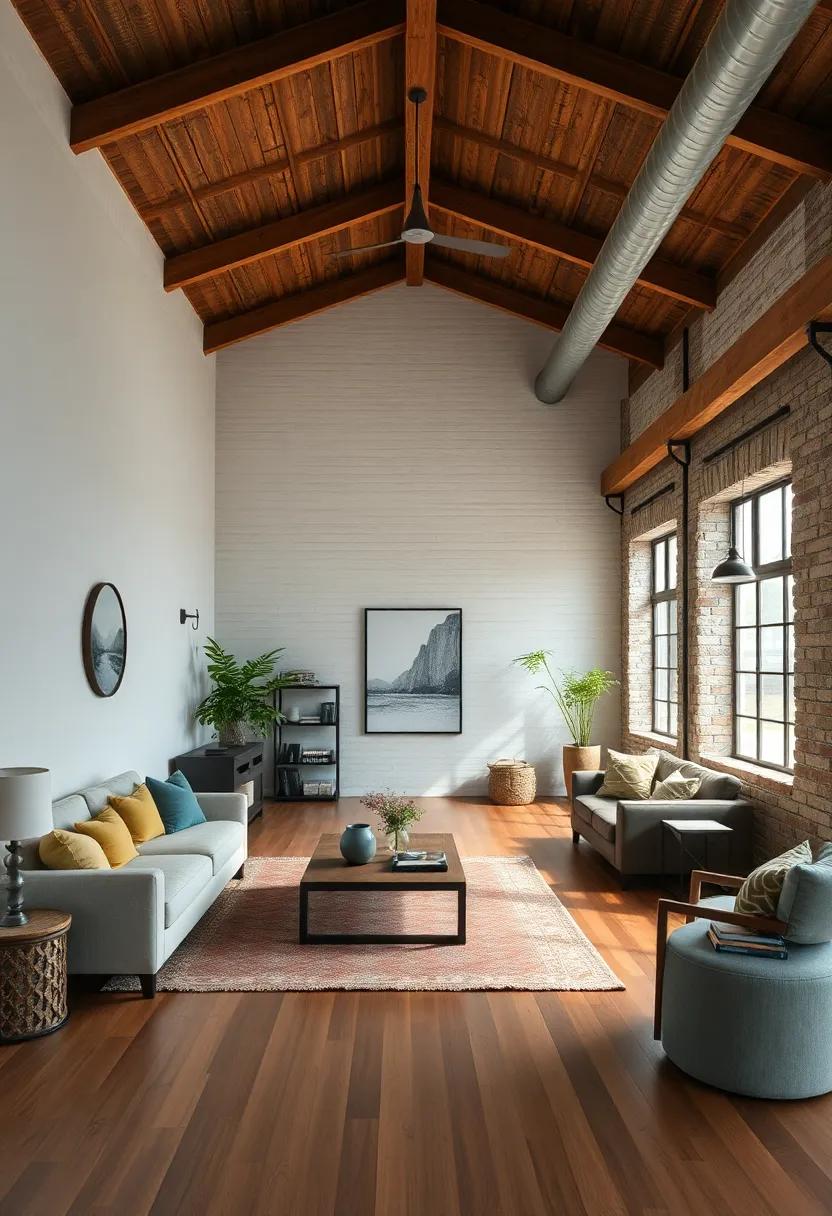
Transforming vast, open warehouse spaces into cozy nooks can be an art form that celebrates both functionality and aesthetic charm. A careful selection of furniture and decor can create inviting pockets within these larger areas. Consider the following elements:
- Warm Textiles: Incorporate soft throws, cushions, and rugs to add warmth and texture.
- Unique Seating: Mix and match chairs,ottomans,and bean bags for a relaxed,eclectic vibe.
- Layered Lighting: Use a combination of ambient, task, and accent lighting to set the mood at various times of day.
To maximize the sense of intimacy,delineate spaces with clever uses of partitions or art installations.Consider using a variety of materials such as reclaimed wood or metal shelving to maintain that industrial feel while still achieving a cozy atmosphere. An example of how these components can come together is illustrated in the table below:
| Design Element | Purpose |
|---|---|
| Soft Lighting Fixtures | Create a warm atmosphere |
| Nature-Inspired Decor | Add life and freshness |
| Personal Touches | Reflect individual style |
A touch of Green: Utilizing Indoor Plants to Add Life to Industrial spaces
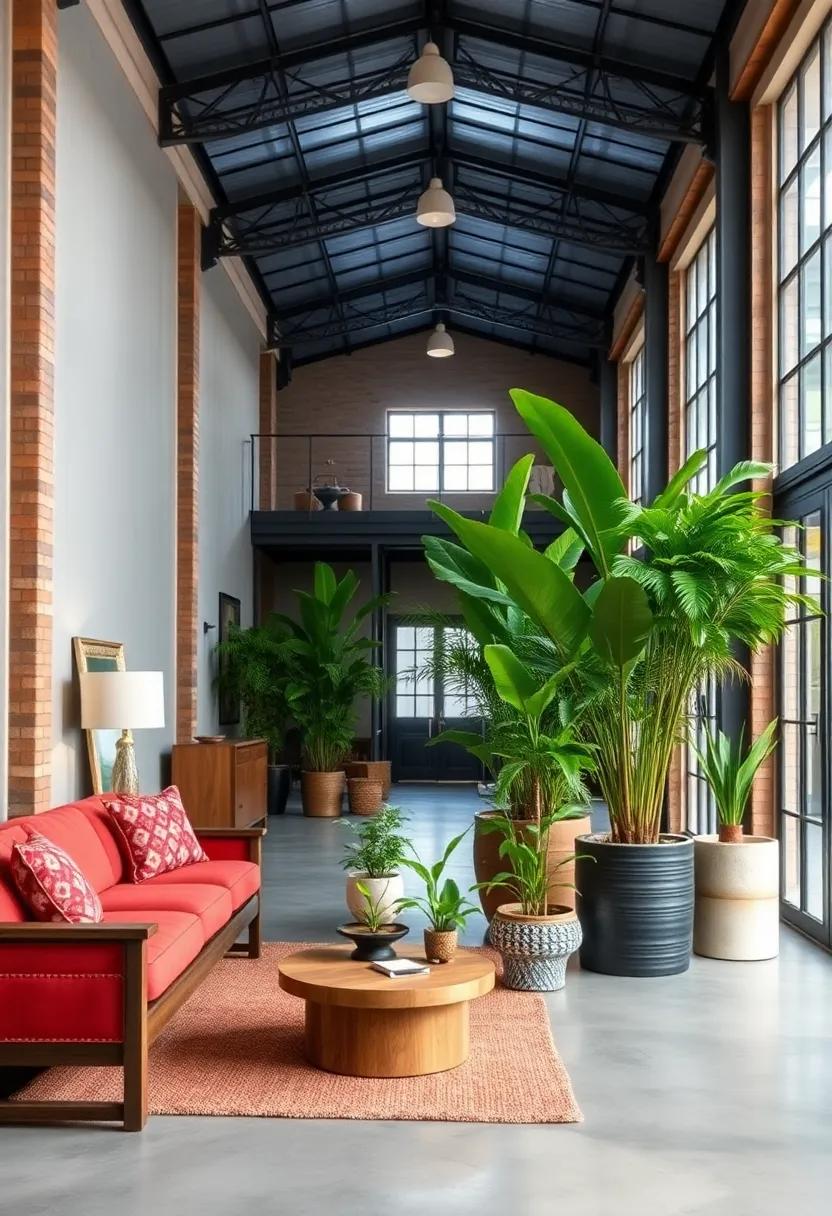
Incorporating greenery into industrial-style interiors can transform stark, raw spaces into inviting environments. The contrast of lush plants against exposed brick and metal fixtures creates a delightful visual balance that softens the harsh edges typical of warehouses. Consider these plants to add life and charm:
- Fiddle Leaf Fig: Its bold leaves can stand as statement pieces in empty corners.
- Snake Plant: Known for its resilience, it thrives in low light and adds height.
- Pothos: Its trailing vines bring a sense of movement while purifying the air.
To enhance the aesthetic, elevate plant displays using interesting containers that reflect the industrial theme, such as aged metal buckets or minimalist concrete pots. Small corner gardens or vertical installations can efficiently utilize space, creating green nooks that invite relaxation. Here’s a simple yet effective layout for plant placement:
| Location | Plant Suggestions |
|---|---|
| Near Windows | Fiddle Leaf Fig, Spider Plant |
| Desk Spaces | Succulents, Peace Lily |
| Living Areas | Rubber Plant, Bamboo Palm |
The Importance of Personalization: Curating Decor That Reflects Your Character
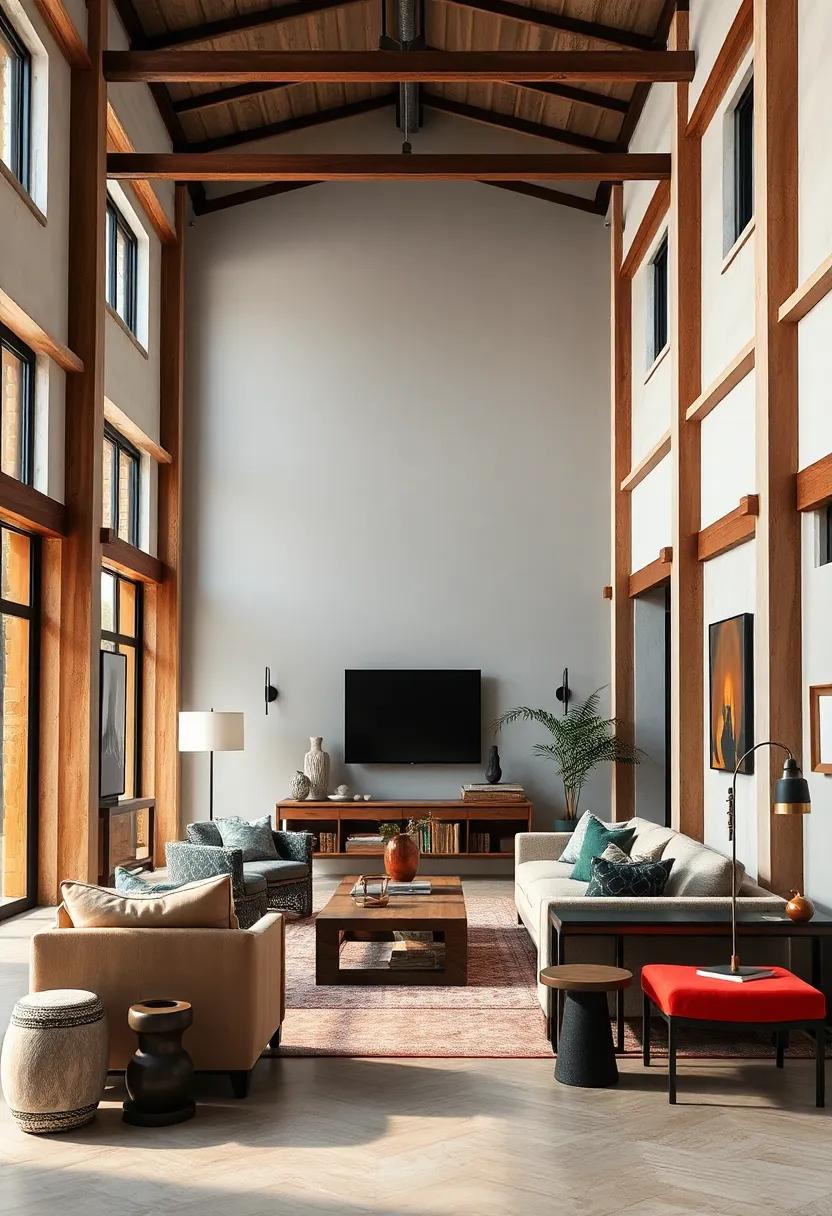
Creating a space that truly embodies who you are is essential for cultivating an inviting atmosphere. Personalization is not merely an aesthetic choice; it’s a chance to narrate your unique story through the items you select. In warehouse-style interiors, each piece can serve as a bold statement of individuality. Consider incorporating elements that resonate with your experiences, such as:
- Vintage Finds: Antique furniture pieces can reflect your gratitude for history and craftsmanship.
- Artworks: Hang paintings or photographs that evoke cherished memories or inspire creativity.
- Textiles: Use rugs or throw pillows that showcase patterns or colors you love, bringing warmth and comfort.
Your decor can become a canvas for self-expression when thoughtfully curated.It’s vital to create a cohesive narrative while ensuring that each piece adds value to the overall ambiance. Warehouse-style interiors, with their raw materials and open spaces, provide an opportunity to arrange elements in a way that feels both authentic and intentional. Consider maintaining a balance by selecting complementary items, such as:
| Type of Item | Suggested Characteristics |
|---|---|
| Furniture | Industrial, reclaimed wood or metal elements |
| Lighting | Exposed bulbs or fixtures with a rustic vibe |
| Accessories | Personalized mementos or travel souvenirs |
By focusing on pieces that evoke a sense of connection, your space will not only resonate with your character but also create an enduring ambiance that invites others in, making it a welcoming refuge reflective of your style.
Functional Aesthetics: Balancing Utility and Style in Warehouse Design
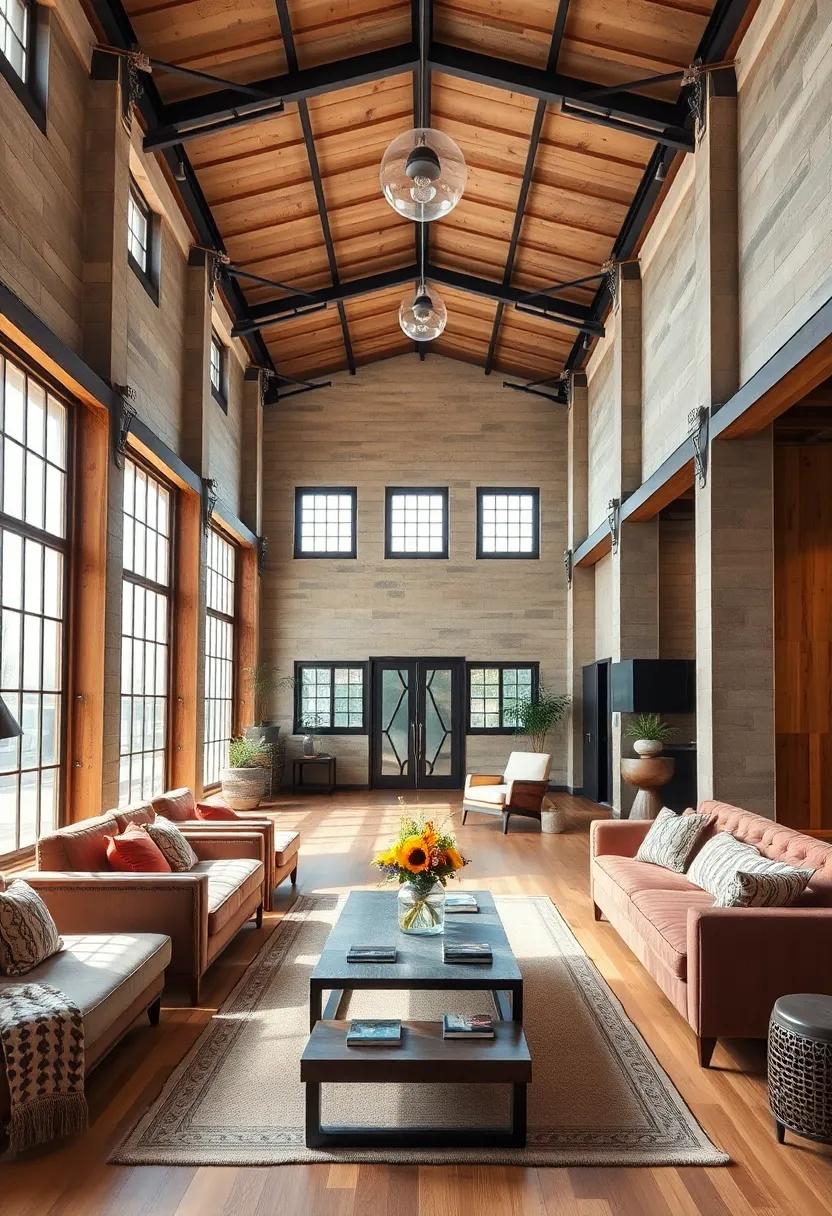
In the realm of warehouse interior design, the challenge lies in striking a harmonious balance between functionality and visual appeal. Traditional warehouse-style interiors often incorporate expansive spaces,high ceilings,and open layouts,all of which can be transformed into aesthetically pleasing environments. Emphasizing natural materials like wood and metal not only enhances the industrial charm but also serves practical purposes. The use of large windows floods the area with natural light,reducing energy costs while creating a warm and inviting atmosphere. Here, form meets function: the ruggedness of the industrial aesthetic complements a flexible workspace that adapts to various business needs.
To achieve a truly engaging warehouse design, incorporating flexible furniture and modular solutions can elevate the space.Essential elements may include:
- Repurposed furnishings that tell a story and add unique character.
- Strategic zoning, creating distinct areas for work, relaxation, and collaboration.
- Unconventional decor such as vintage signage and reclaimed artifacts to add personality.
By blending practicality with artistic expression, warehouse interiors can exit the realm of mere utility and become vibrant spaces that encourage productivity and creativity. This synergy not only enhances the functional aspects but also celebrates the industrial heritage, making every inch of the warehouse a testament to thoughtful design.
Connecting Past and Present: The Timeless Appeal of Vintage Decor
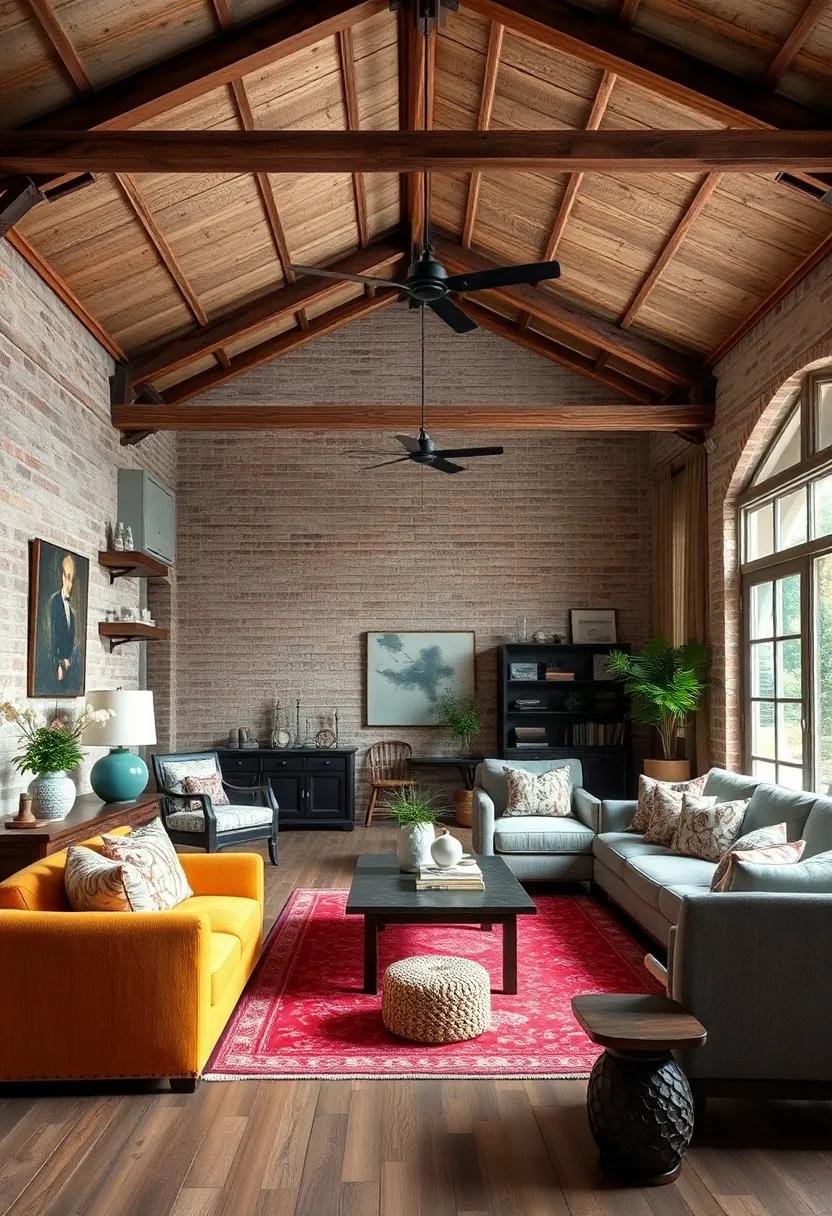
Vintage decor has an enchanting ability to link generations, allowing us to experience a sense of nostalgia while appreciating the unique stories embedded in each piece. The charm of traditional warehouse-style interiors is often amplified by the rustic elements that transport us to a bygone era, where craftsmanship and simplicity reigned. Popular features that showcase this connection include:
- Exposed Beams: These architectural details add character and warmth, creating an inviting atmosphere.
- Industrial Fixtures: Vintage lighting and hardware that blend utility with beauty.
- reclaimed Materials: Wood, metal, and other materials that carry the history of their previous lives.
The vintage aesthetic not only preserves the past but also complements modern living with its eclectic style.The juxtaposition of old and new encourages creative expression, making spaces feel lived-in and unique. Each piece can serve as a conversation starter, fostering connections among visitors. To illustrate the versatility of this design approach,consider how various elements can seamlessly coexist:
| Element | Modern Twist |
|---|---|
| Antique Furniture | Pair with contemporary art for a fresh feel. |
| Vintage Rugs | Layer with minimalist decor to create depth. |
| Old Books | Use as accents on sleek shelves for an intellectual vibe. |
The Play of Light: How Natural Lighting Enhances Warehouse Interiors
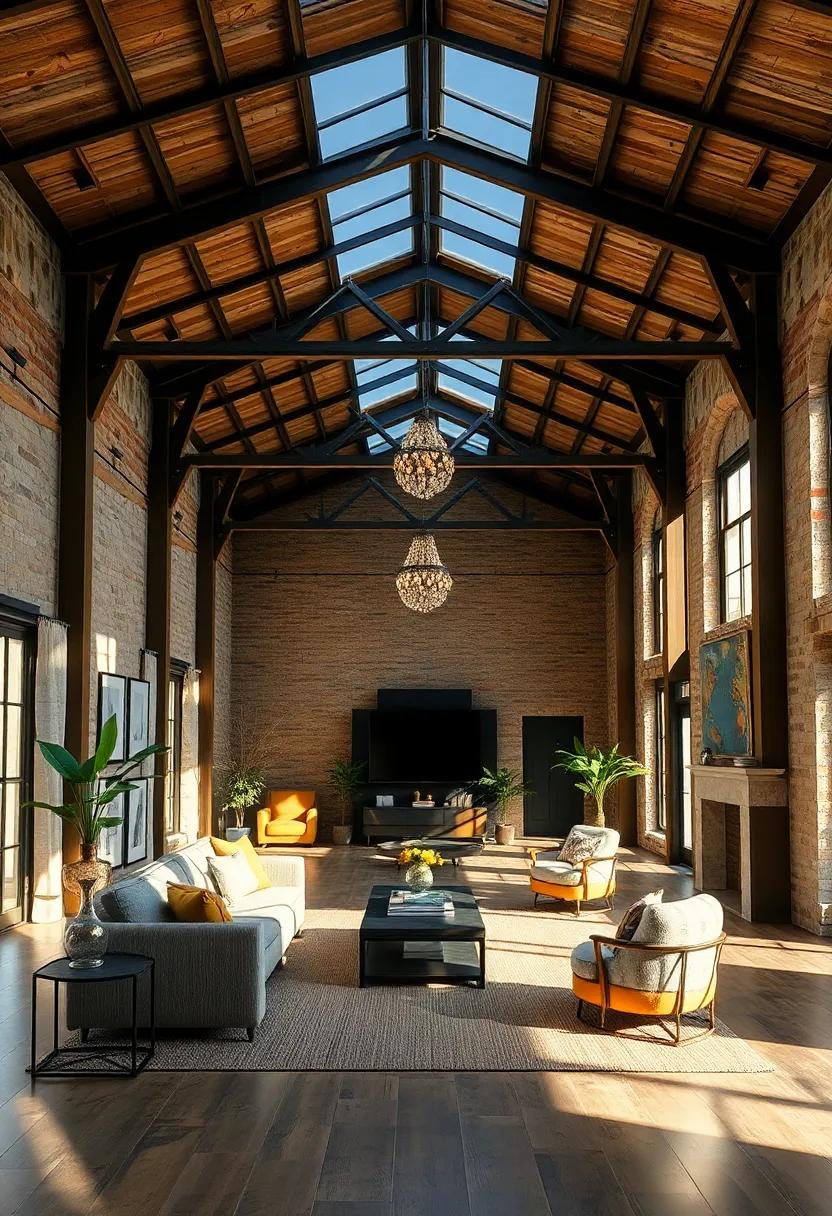
Natural lighting plays a pivotal role in transforming the ambience of warehouse interiors, infusing spaces with a sense of life and warmth. When sunlight filters through large,industrial windows,it creates an alluring play of light and shadow that accentuates architectural features such as exposed beams and brick walls. This blend of light not only enhances the visual appeal but also promotes a more inviting atmosphere,making the space feel less austere and more like a home. Consider the following elements of natural lighting in warehouse-style interiors:
- Daylight Harvesting: Utilizing natural light reduces reliance on artificial sources and lowers energy consumption.
- Visual Depth: Natural light draws attention to textures and colors, providing a dynamic aesthetic experience.
- Wellness Benefits: Natural light is known to boost mood and productivity, enhancing the overall experience of the space.
Strategically placed skylights or floor-to-ceiling windows can dramatically elevate the spaciousness of a warehouse interior.By allowing light to penetrate deep into the area, these features not only illuminate dark corners but also create a seamless connection between indoor and outdoor environments. In a well-designed layout, the natural illumination boasts the power to transform spaces throughout the day as the sun moves across the sky, making every hour an interesting study of light. To illustrate the impact of natural light, consider the following table:
| Time of Day | Light Quality | Effect on Space |
|---|---|---|
| Morning | Soft, Warm | Creates a Cozy Atmosphere |
| Noon | Bright, Direct | Accentuates Details & Colors |
| Evening | Golden, Diffused | Invokes Serenity & Calm |
Cultural Inspirations: Global Influences in Traditional Warehouse Design
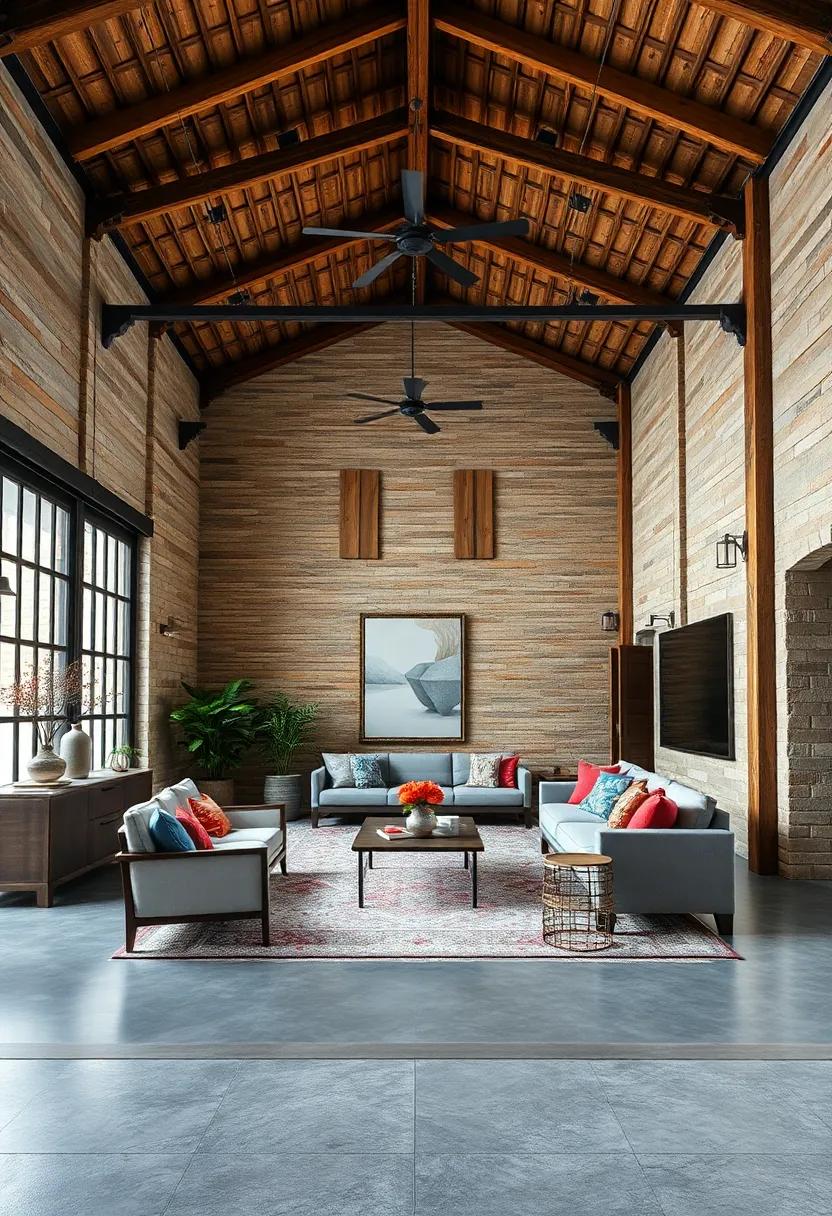
Traditional warehouse design is a beautiful amalgamation of cultural elements from around the globe. The rustic charm of exposed brick walls and towering wooden beams can be traced back to European influences, particularly from places like the industrial heartlands of England and Germany.The design embraces industrial aesthetics mixed with local craftsmanship that speaks to the region’s heritage. As a notable example, the use of reclaimed materials not only adds character but also showcases a commitment to sustainability, a value shared across various cultures. The visual narrative woven from elements such as cement flooring, large metal fixtures, and natural light not only enhances functionality but promotes inclusivity and openness in shared spaces, reminiscent of traditional communal living found in many societies.
Together,the infusion of Eastern motifs,such as minimalist Zen elements and bamboo accents,brings a sense of tranquility and balance to these raw spaces. This blend encourages a cross-cultural dialogue that transforms warehouses into vibrant living environments. Influences from Scandinavian design also enter the fray,where clean lines and functional furniture merge seamlessly with warmer,rustic features of warehouses,creating a cozy yet stylish atmosphere. To illustrate these global inspirations, consider the following table highlighting distinctive elements from various cultures that resonate with traditional warehouse-style interiors:
| Cultural influence | Design element |
|---|---|
| European Industrial | Exposed brick and wood beams |
| Japanese zen | Bamboo accents and minimalism |
| Scandinavian | Functional furniture and clean lines |
| American Rustic | Reclaimed wood and vintage fixtures |
| Middle Eastern | Intricate lattice work and textiles |
Sculptural Furniture: Emphasizing Artistic Pieces in Spaces with Character
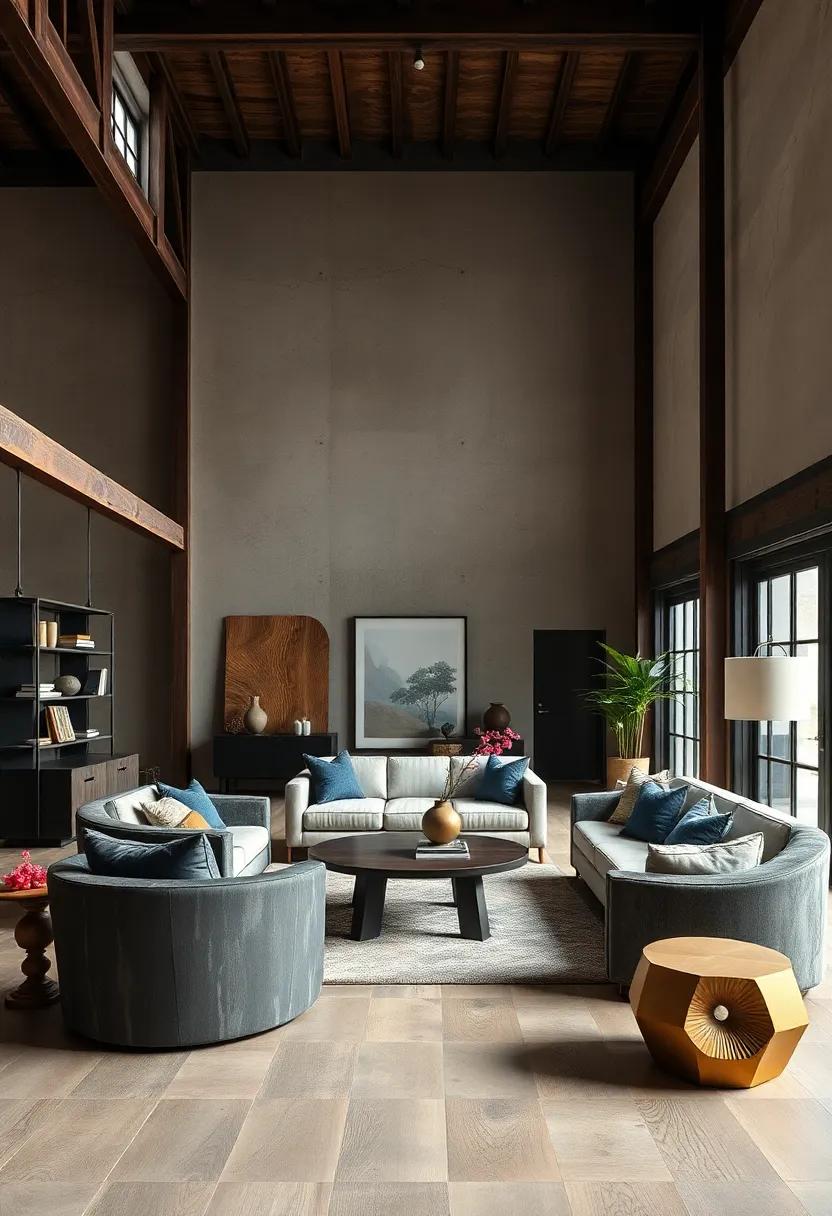
In the realm of interior design, sculptural furniture serves as a transformative element, inviting both functionality and aesthetic value into warehouse-style interiors. These pieces, often characterized by their bold forms and artistic flair, can serve as focal points that draw the eye while complementing the raw, industrial characteristics of a warehouse space. whether it’s a striking chair that resembles a piece of art or a coffee table crafted with unique geometries, these creations add depth and personality, enhancing the character of any room. Not only do they provide seating or surface area, but they also tell a story, melding the boundary between furniture and art.
Choosing sculptural furniture can elevate the overall design while harmonizing with other vintage or reclaimed elements typical of warehouse settings. When integrating these artistic pieces, consider the following:
- Color Palette: Opt for colors that enhance the existing tones in your space.
- Materials: Metal, wood, and glass can create diverse textural contrasts.
- Scale and Proportion: Ensure items are proportional to the scale of the room for a balanced look.
Additionally, it’s essential to create a dialogue among elements within your interior. A combination of sculptural furniture with traditional accents can emphasize the inherent charm of warehouse-style interiors. Below is a simple guide to help visualize the arrangement of these pieces within a living space:
| Furniture Type | Suggested Placement |
|---|---|
| Sculptural Armchair | reading nook against a large window |
| Artistic Coffee Table | Center stage in the living room |
| decorative Side Table | Next to a vintage sofa |
Daring to Be Different: Unconventional Design Choices That Inspire Creativity
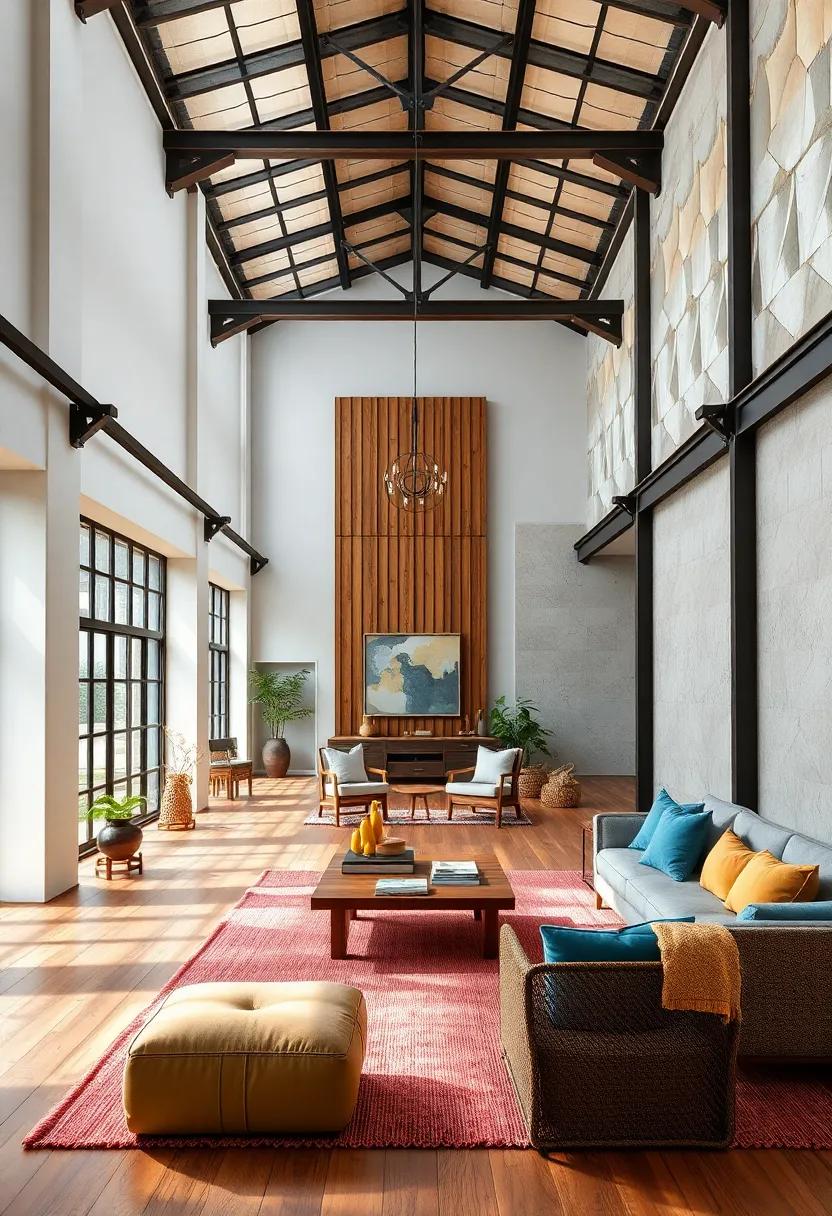
In a world where minimalism reigns supreme, traditional warehouse-style interiors stand as a bold testament to the beauty of imperfection and age. These spaces, often characterized by their exposed brick walls, high ceilings, and raw materials, invite a sense of nostalgia while seamlessly integrating modern comforts. The allure lies not just in the aesthetic, but in the stories that every beam and crack in the wall tells. When you embrace this style, you choose a narrative that celebrates history, encouraging deeper connections between inhabitants and their environment.Elements such as:
- Vintage Lighting Fixtures: Industrial pendant lights cast a warm glow,infusing the space with character.
- repurposed Furniture: Unique finds and old pieces bring charm and individuality.
- Open Spaces: The unhindered flow fosters creativity and collaboration.
Additionally, the tactile quality found in warehouse interiors sparks the creativity, inspiring innovative design elements that transform living spaces into inspiring retreats. Utilizing materials such as reclaimed wood, concrete, and metal creates a tactile harmony while allowing for an array of personalization. Color palettes often draw from earthy tones contrasted with bold accents, providing a canvas for artistic expression. Consider the following table as a guide to essential components in crafting a stunning warehouse-style aesthetic:
| Element | Description |
|---|---|
| Exposed Brick | Brings warmth and texture |
| High Ceilings | Creates an airy, spacious feel |
| Steel Beams | Adds an industrial touch |
| Large Windows | Enhances natural light and openness |
In Summary
As we draw the curtains on our exploration of traditional warehouse-style interiors, it becomes clear that these spaces are more than mere backdrops; they are living narratives woven from history, character, and creativity. The allure of soaring ceilings, rough-hewn beams, and industrial chic accents calls to those who seek a blend of rustic charm and modern sensibility. By embracing this design aesthetic,we not only celebrate the past but also breathe fresh life into contemporary living.
In a world overflowing with fleeting trends, traditional warehouse interiors offer a timeless canvas, inviting us to curate our own stories within their sturdy walls. So whether you’re contemplating a complete overhaul or simply looking to infuse a bit of this style into your home, remember that the essence of warehouse charm lies in authenticity and the beauty of imperfections. Let your space echo the warmth of tradition while embracing the essence of you. As you embark on this journey, we hope you find inspiration in the allure of warehouse living and create an environment that feels both welcoming and uniquely your own.
As an Amazon Associate I earn from qualifying purchases.
